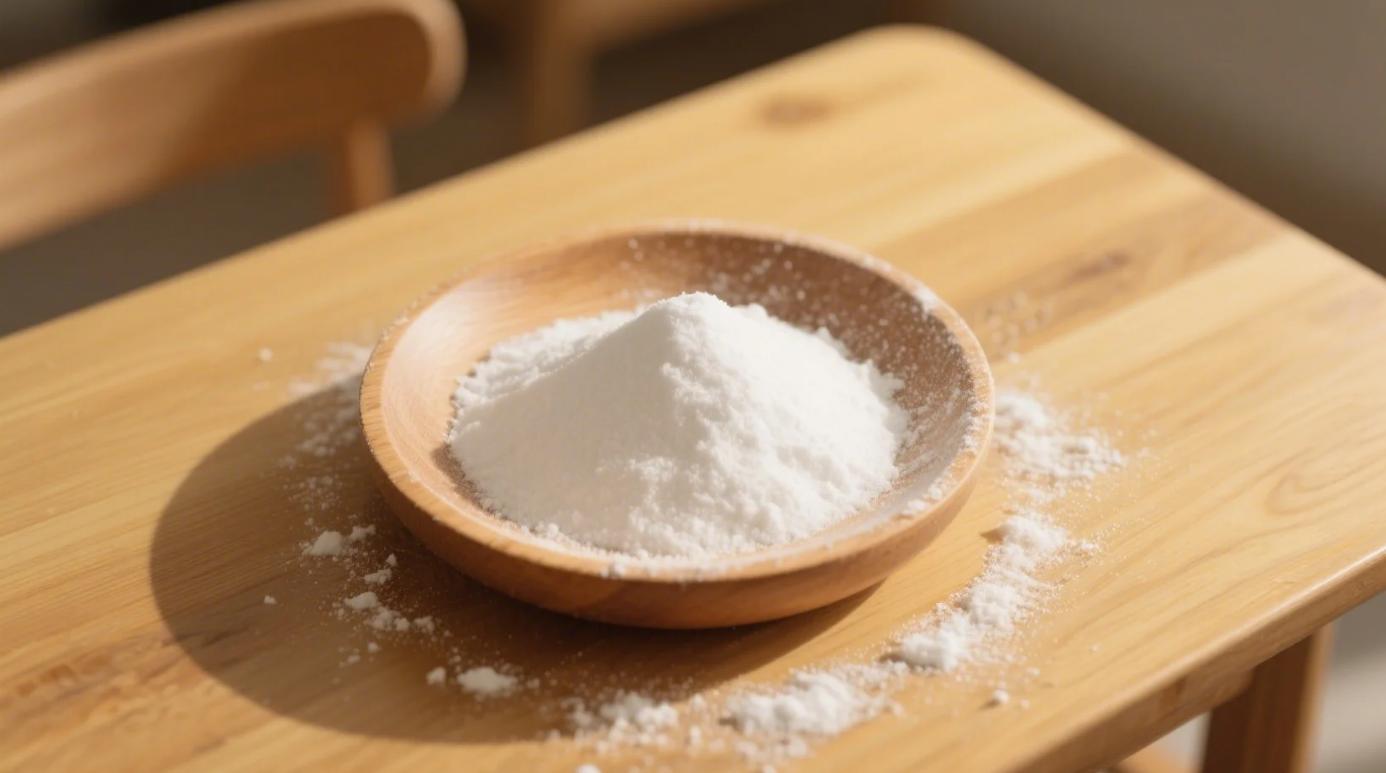The Dental Dilemma: Can a Sweetener Fight Cavities?
In a world where sugary treats are public enemy #1 for teeth, organic xylitol—a plant-based sweetener derived from birch trees or non-GMO corn—has sparked both hope and skepticism. Touted as a “tooth-friendly” sugar substitute, does it live up to the hype? Let’s uncover the science-backed truth about xylitol’s impact on oral health.

1. Xylitol’s Dental Superpowers: Proven by Science
Cavity Crusher
Xylitol disrupts Streptococcus mutans, the bacteria responsible for tooth decay:
- Reduces Plaque: Inhibits bacterial adhesion to teeth, cutting plaque buildup by 35% (Journal of Dental Research, 2022).
- Neutralizes Acid: Raises mouth pH within minutes, preventing enamel erosion.
- Stimulates Saliva: Enhances remineralization, crucial for repairing early cavities.
Clinical Proof: A 3-year study showed children using xylitol gum had 60% fewer cavities vs. sucrose gum users (Finnish Dental Association).
Gum Health Guardian
- Fights Gingivitis: Reduces bleeding gums by suppressing Porphyromonas gingivalis (Journal of Periodontology).
- Post-Surgery Aid: Xylitol rinses accelerate healing after tooth extractions.
2. The Organic Edge: Why Source Matters
Not all xylitol is created equal. Conventional brands may use GMO corn or harsh bleaching agents. Organic certification ensures:
- Non-GMO Sourcing: Birch-derived xylitol avoids pesticide residues linked to oral inflammation.
- No Synthetic Additives: Prevents hidden toxins like chlorinated compounds found in cheaper processing.
- Eco-Friendly Harvesting: Sustainably farmed birch trees promote biodiversity, unlike monocrop cornfields.
3. Xylitol vs. Other Sweeteners: The Tooth Test
| Sweetener | Acid Production | Plaque Formation | Enamel Protection |
|---|---|---|---|
| Xylitol | None | Inhibits | Strengthens |
| Sugar | High | Accelerates | Destroys |
| Erythritol | Low | Neutral | Mild protection |
| Stevia | Low | Neutral | No benefit |
Key Takeaway: Xylitol is the only sweetener clinically proven to reverse early decay.
4. How to Use Xylitol for Optimal Oral Health
- Morning Routine: Add 1 tsp organic xylitol powder to homemade toothpaste.
- Post-Meal Ritual: Chew xylitol gum (2-3 pieces daily) for 5 minutes to neutralize acid.
- Kid-Friendly: Swap sugary snacks with xylitol-sweetened gummies (safe for ages 3+).
Pro Tip: Pair with fluoride-free oral care for holistic hygiene.
5. Addressing Concerns: The Fine Print
- Digestive Sensitivity: Over 50g/day may cause bloating—stick to <20g for most adults.
- Pet Warning: Toxic to dogs (even small doses)—store securely.
- Not a Cure-All: Still requires brushing/flossing; enhances but doesn’t replace oral care.
6. The Future of Tooth-Friendly Sweetness
Innovations are amplifying xylitol’s benefits:
- Nano-Encapsulated Xylitol: Slow-release lozenges for 12-hour cavity protection.
- Prebiotic Synergy: Blends with L. reuteri probiotics for gum microbiome balance.
Sweeten Smart, Smile Brighter**
Organic xylitol isn’t just a sugar substitute—it’s a dental ally rooted in nature and validated by science. By choosing organic, you safeguard both your smile and the planet. Whether in your toothpaste, gum, or morning coffee, this sweet defender proves indulgence and health can coexist.
Chew wisely. Grin fearlessly.
Recommended Product
Organic Xylitol
Natural Sugar Alcohol for Tooth-Friendly, Low-Glycemic Formulations
